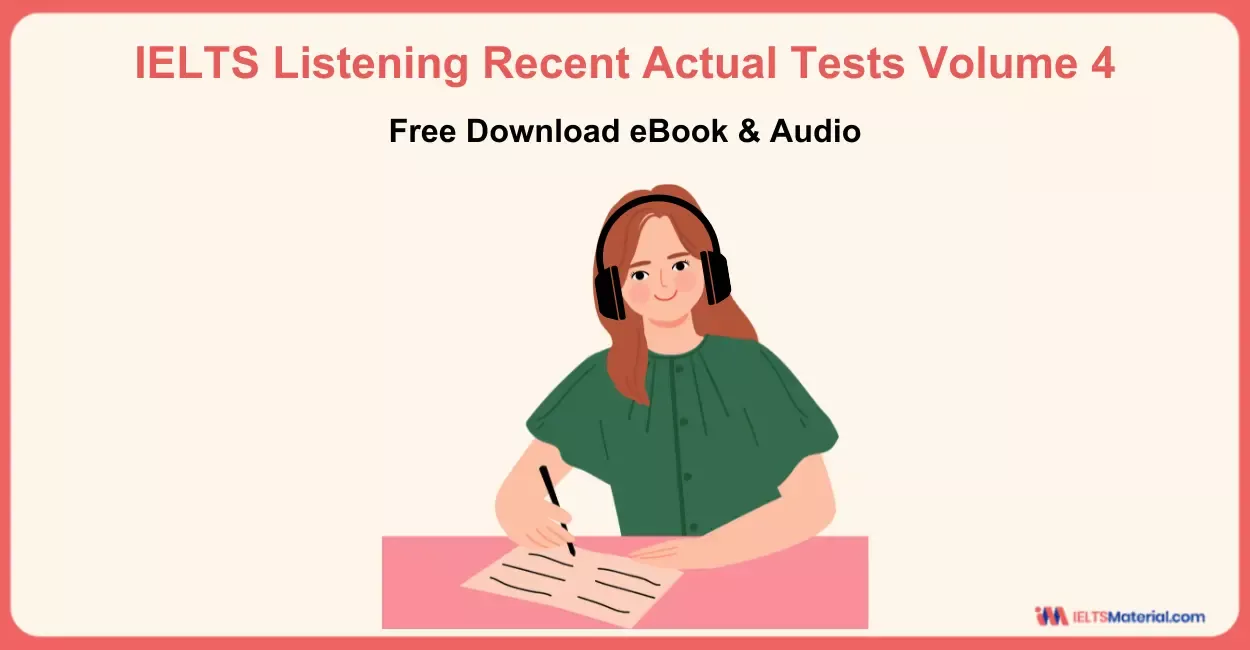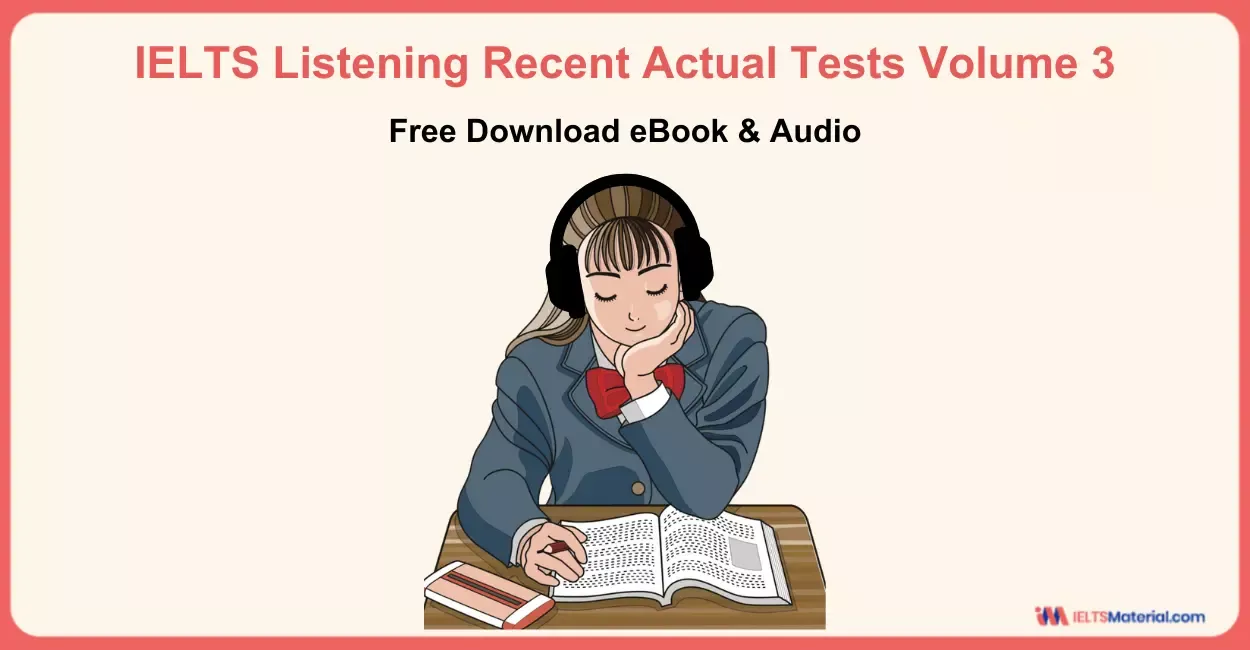IELTS Listening Distractors
7 min read
Updated On
-
Copy link
IELTS Listening Distractors are words or phrases in the audio that are used to confuse or distract the listener from answering the question correctly. Learn more about the types and ways to deal with them in this blog.
Table of Contents

Limited-Time Offer : Access a FREE 10-Day IELTS Study Plan!
IELTS aspirants often consider the listening module to be challenging and one of the major reasons is IELTS Listening distractors. As the name suggests, they are meant to distract you and make mistakes if you are not paying complete attention to the audio. So, understanding and handling these distractors effectively can significantly improve your listening score.
In this blog, we’ll explore what distractors are, how they work, and offer practical tips and examples to help you ace your IELTS Listening exam.
IELTS Listening Distractors: Definition & Types with Example
When you are listening to the audio while solving IELTS Listening practice tests, sometimes you hear the speakers provide extra information or wrong data, which they rectify immediately. These are known as distractors.
In other words, IELTS Listening distractors are words or phrases designed to mislead or confuse the test-takers. The purpose to include these distractors in the audio is to test your ability to comprehend and differentiate between relevant and irrelevant information.
Types of IELTS Listening Distractors with Examples
Distractors in IELTS Listening may come in various forms. Let us look at the most common types.

- Contradictions: A speaker might say one thing and then correct themselves.
John: This week will be really busy for us due to the upcoming projects.
Mark: Yes, I know. But when is the next meeting scheduled for the discussion?
John: Originally, the meeting was scheduled for Wednesday, but due to a scheduling conflict, we’ve moved it to Thursday.
As you can see in the example above, at first, John says that the meeting was scheduled for Wednesday. Then, in the same sentence, he contradicts himself and informs Mark that the meeting has been moved to Thursday. If you are not paying attention properly, you will listen till the part where it is said ‘the meeting was scheduled for Wednesday’ and move to the next question, losing a point.
- False Starts: A speaker begins a sentence but changes direction mid-way.
Mary: Thanks a lot for supporting my dream. You have been the best help I could ever get.
Meghan: Don’t forget my free latte as a paycheck! By the way, when are you planning to open the new store?
Mary: We plan to open the new store in August... No, actually, it will be September.
When asked when the new store is going to open, Mary starts by saying that it is in August. But eventually, she rectifies herself and says it will be in September. This is how false starts can easily distract you if you are not actively listening to the audio.
- Similar Sounding Words: Words that sound similar but have different meanings.
Joana: The study group has been of extreme help to me. But I am sometimes late to them due to the back-to-back classes and miss out on lots of discussions.
Ricky: No worries. I can help you out with that. But I heard they have their location this time due to the experiments being conducted in the laboratory.
Joana: The study group will meet in the library, not the laboratory. They have changed the location, as it’s easier to get hold of the required reference materials.
Ricky: Oh! I would have definitely gone to the library if you didn’t tell me.
You can easily mishear or get confused between ‘library’ and ‘laboratory’ since they are quite similar to the ears. Moreover, if you are not familiar with the varying accents in these audios, such confusing words can lead to an error. So, make sure you use the IELTS pronunciation guide and train your ears to avoid making mistakes.
- Paraphrasing: Information is rephrased or presented differently from the question.
Lily: So, why did you end up canceling the trip to the mountains? I thought you were really looking forward to it.
James: We were! Initially, the weather forecast showed clear skies and mild temperatures, perfect for hiking. But as we got closer to the departure date, the reports started changing. They predicted a severe storm with heavy rains and strong winds. It would have been too risky to continue with the plan, especially with the kids.
Lily: Oh, I see. So it was mostly because of the storm forecast?
James: Exactly. Safety comes first. We didn’t want to take any chances.
- Question: Why was the trip to the mountains canceled?
- clear skies and mild temperatures
- bad weather
- kids disagreed
In this case, the correct answer is 2 as ‘a severe storm with heavy rains and strong winds’ has been summarized as ‘bad weather’ in the option. If you are not paying attention or do not have good summarization skills and IELTS vocabulary knowledge, these types of distractors can lead to an incorrect answer. Moreover, the other two options are used in the audio, which can further confuse you if you are not well prepared with IELTS Listening distractors.
- Unnecessary Details: Extra information that doesn’t contribute to the correct answer.
Good afternoon, everyone. I wanted to give you a quick update on the upcoming changes to our company’s health benefits plan. Starting next month, we’ll be introducing a few new features that are designed to make the plan more comprehensive. First, we’re adding coverage for dental check-ups and orthodontics, which we know has been a long-requested addition by many of you. Second, there will be an option for vision care, including eye exams and a discount on prescription glasses. Now, I know these changes sound exciting, but the most significant update is the increase in the overall annual coverage limit, which will go up from $2,000 to $3,000 per employee. This increase will allow for more extensive treatment coverage. Lastly, the way you submit claims will also become more streamlined, with a new mobile app to make the process faster and more convenient. We believe these changes will significantly enhance your experience with our health benefits.
- Question: What is the most significant change in the company’s health benefits plan?
- dental check-ups and orthodontics
- visions care
- increase in the overall annual coverage limit
- submit claims
Since all the options are mentioned in the audio and you can hear the audio only once, this distractor can cause a mistake. You will be overwhelmed with the extra unnecessary information and might not be able to decide upon which is the correct answer.
Want to know more about common errors made in IELTS Listening? Check out the video!
Tips to Tackle IELTS Listening Distractors
The most important and useful IELTS Listening tip for handling IELTS Listening distractors is to pay attention to the audio. If you are paying attention to the audio, it is less likely that you will get misguided by the distractors. Five more crucial tips you can follow to tackle them are:
- Watch for Corrections and Clarifications: Distractors often involve speakers correcting themselves or changing information mid-sentence. Pay close attention to phrases like ‘Actually,’ ‘I mean’, or ‘Sorry, what I meant was’, which usually indicates that the initial information is being corrected. Always focus on the final statement to ensure you capture the accurate detail.
- Take Advantage of Predictive Listening: Before the audio starts, skim the questions to predict the type of information you will need.Predicting answers in IELTS Listening with prepositions and other context clues will help you concentrate on key points and make it easier to spot distractors when they arise, as you will be expecting specific types of answers.
- Pay Attention to Tone and Intonation: Speakers often use tone and intonation to emphasize corrections or key points. A change in the speaker’s tone can signal a correction or a shift in focus. Practice listening for these subtle cues to differentiate between distractors and important information.
- Focus on the First and Last Statements: Distractors often involve initial statements that are corrected or clarified later. So, pay special attention to both the first and last statements related to a question, as the final statement usually contains the accurate information.
- Be Mindful of Order in the Audio: The answers in the IELTS Listening test generally follow the order of the questions. If you think you have heard the answer to a question but the speaker continues talking, listen carefully for further details or corrections that might affect the accuracy of your answer.
IELTS Listening Distractors Practice
Take these following IELTS Listening tests and check if you are able to dodge the IELTS Listening distractors to reach your destination of a perfect IELTS band score.
- Test 1: Mic House Agency Repairs - IELTS Listening Answers
- Test 2: Free Activities in the Burnham Area – IELTS Listening Answers
- Test 3: Ocean Biodiversity - IELTS Listening Answers
- Test 4: Moving to Banford City - IELTS Listening Answers
- Test 5: Scandinavian Studies - IELTS Listening Answers
To sum up, IELTS Listening distractors are an integral part of this module, and mastering them requires practice and strategy. By understanding how distractors work and applying the tips provided, you can enhance your listening skills and improve your chances of achieving a higher score. However, remember, practice makes perfect, so make use of available resources and keep honing your listening abilities. Good luck!
Also Check:
- 1200 Common Words in IELTS Listening to Boost Vocabulary
- 3 Brilliant TV Series To Improve Your IELTS Speaking, Listening & Pronunciation (Part 1)
- Useful Materials-Resources & Websites for IELTS Listening skills practice
- How to Improve IELTS Listening Band Score from 6.5 to 8
- Word Count Questions
- Should You Use All Capital Letters in the IELTS Listening and Reading Tests

Start Preparing for IELTS: Get Your 10-Day Study Plan Today!
Explore other Listening Articles

Nehasri Ravishenbagam

Kasturika Samanta
Recent Articles

Kasturika Samanta

Prity Mallick

Haniya Yashfeen

Kasturika Samanta






Post your Comments